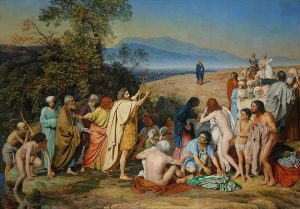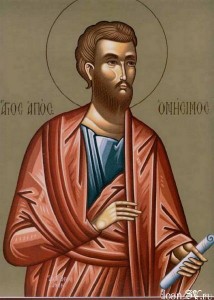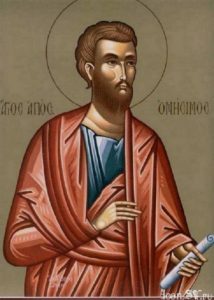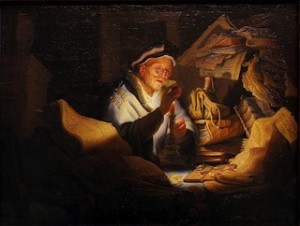Illuminations on the Lectionary readings for Sept. 7, 2025 (Pentecost 13C/Proper 18)

Christ Before the People (1837-1857), oil painting on canvas by Alexander Ivanov (1806-1858). Tretyakov Gallery, Moscow. (Click image to enlarge.)
First Reading (Track One): Jeremiah 18:1-11
Sunday’s readings prompt us to reflect on our assumptions about God’s role in the universe and Jesus’s image as the gentle Good Shepherd. In the Track One first reading, God sends Jeremiah to watch an artisan – a creator who fashions pots from clay – who does not hesitate to smash and re-make an unsatisfactory creation over and over again. If the people of Judah do not turn from their evil ways, Jeremiah hears, then God, like a cosmic potter, will create disaster for them. However, that God – the cosmic potter – tries creation over and over again. Even when humanity goes wrong, the possibility of repentance and restoration remains.
First Reading (Track Two): Deuteronomy 30:15-20
After wandering 40 years in the desert, the Israelites reach the River Jordan at last and are preparing to cross into the Promised Land. Before they make this long-awaited crossing, they pause while Moses reminds them of the covenant they made at Mount Sinai: Love God and walk in God’s ways, follow God’s laws, and you will thrive and prosper. But turn away from God, and you will lose the land and God’s blessings. This simple call to follow God’s way lies at the center of Scripture, and it shapes Jesus’ message to us as well.
Psalm (Track One): Psalm 139:1-5, 12-17
God knows us as intimately as Jeremiah’s potter knows his clay. Whatever we do, wherever we go, God knows our every thought, the Psalmist sings. God knows every word that we speak and every idea that we imagine. Even before we were born, God knew us. The Psalmist, however, does not explicitly thank God for knowing our every moment, nor do these verses ask how this knowledge affects our daily lives. No, the simple fact that God knows us so deeply is enough.
Psalm (Track Two): Psalm 1
Psalm 1, the first of the 150 ancient hymns that make up the Psalms, echoes Moses’ theme at the banks of Jordan: The world is made up of two kinds of people, those who follow God’s laws and those who do not. Follow God’s laws and be happy and prosper; follow the way of the wicked and perish. Scripture is far more nuanced than this black-and-white understanding, of course. Still, “follow God’s ways and win, follow evil ways and lose,” concisely sums up the Covenant that Moses made with God for the people at Mount Sinai.
Second Reading: Philemon 1-21
Paul, having befriended young Onesimus, a slave, in prison, writes a letter about the youth to the slave’s master, Philemon. We might wish that Paul had taken a strong stand against slavery, offering clear guidance on this evil practice that would ring through the ages. But read it closely, and we see that Paul is gently guiding Philemon to a deeper truth: Christians should love each other as brothers and sisters. There is no space for slavery in that!
Gospel: Luke 14:25-33
Tension is rising as Jesus continues his journey toward Jerusalem and the cross. The crowds that have been following him since he set his face toward Jerusalem are growing larger and more excited. Meanwhile, the Romans and the Temple authorities are growing nervous about this unruly crowd descending on the capital at Passover. Jesus needs the crowd to know that it will not be easy to follow him on this journey, just as he had warned them earlier that he came not to bring peace but division. Does he really mean that we have to hate our families and give up everything we have to follow him? Is Jesus just exaggerating to make his point? This much is sure: Jesus is warning his followers not to start a task that they can’t finish. They must follow him not halfheartedly but with whole hearts.



